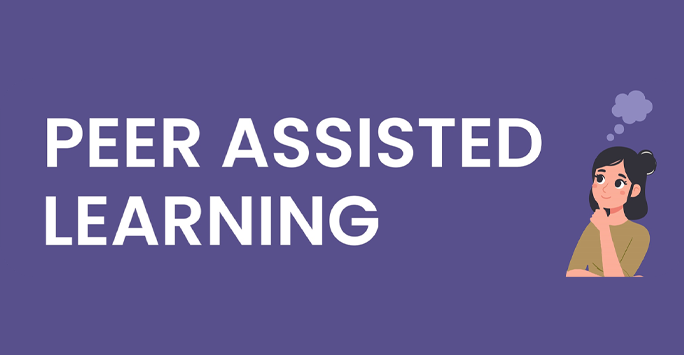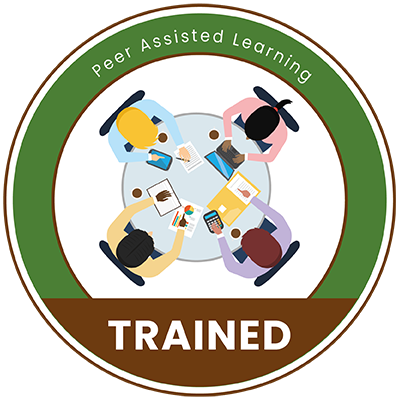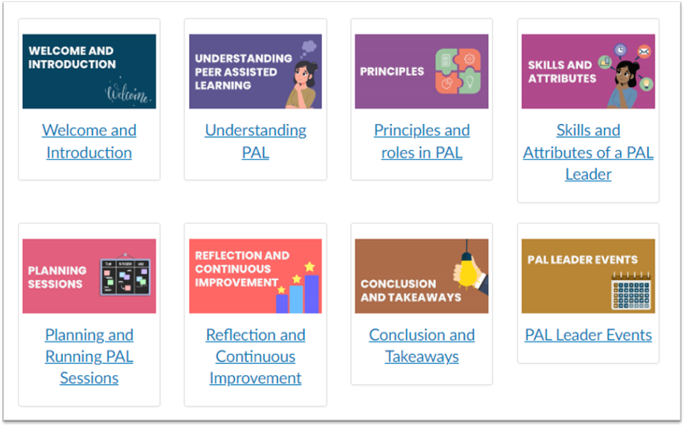Innovating Peer Assisted Learning (PAL) Student Support
Posted on: 30 September 2024 by David Watson and Will Moindrot in General

When CIE was approached with the opportunity to re-design and facilitate the Peer Assisted Learning (PAL) Leader’s student support for the 2024/25 academic year, we sensed the chance to develop a resource that fits with the modern students’ needs, and indeed expectations.
Traditionally, PAL leaders’ workshops had been in-person and occupying roughly a day of the student’s time with structured group-based discussion activities, and not to forget, a free lunch thrown in. Whilst a successful approach, we felt that we could develop a support resource that wouldn’t have such a high demand on student time, and that afforded flexibility and convenience at the same time.
Now there will be no surprise to hear that we decided that moving forward we would develop a self-paced, self-enrol Canvas course. But despite this being the option that we chose, we realised that this would be omitting one key element to PAL – in-person contact between peers. So, as a supplement to the online course we decided to facilitate an in-person 90-minute workshop, with another key element included – experienced student PAL leaders sharing their experiences and knowledge of PAL at the University.
Focussing firstly on the online course, we thought it important that in addition to involvement in PAL contributing towards their Higher Education Achievement Report (HEAR), that those who took the time to enrol and navigate the course could take something tangible instantly away with them. Therefore, we embedded a short 15 question randomised quiz with a short written reflective task, which not only assesses engagement with the training, but also unlocks a digital badge for them to demonstrate and market their skills and experience to secure placements and other career opportunities.

Figure 1: Example of a PAL digital badge
At the core of the course is structured supportive content and materials covering understanding PAL, principles and roles in PAL, skills and attributes of a PAL leader, a toolkit for planning and running PAL sessions, and reflection for continuous improvement.

To our surprise (and delight), our expectations of 20 students to attend the in-person workshop was by far surpassed, with an estimated 50-60 students attending on the day. Central to this was our experienced PAL leaders Michael Gillin (Chemistry), Harry Palmer (Chemistry), and Siyavash Khajat (Electrical Engineering & Electronics) who all shared their experiences and tips on how to be a successful and effective PAL leader. It was impressive to see the planning and resourcefulness from these leaders, with a particular emphasis shown on how they ensure PAL also contributes towards the sustainability goals of the institution. Additional conversations were had around what students thought would be the most challenging part of being a PAL leader, before we moved onto the main element of the workshop – the world café.
This fruitful approach enabled students to rotate tables every 8-10 minutes to discuss a different prompt, which included: getting the most out of the PAL leader experience, practicalities of running PAL sessions, helping student engagement, helping students to make effective use of learning resources, and innovation and ideas. Finally, students were invited to share via Poll Everywhere anonymously their thoughts on what would make PAL more appealing to their needs. In addition to suggestions such as ‘Pizza’ and ‘playing calming music to make for a comfier atmosphere’ (both of which we strongly approve of), there were comments such as:
- […] be aware of when assignment/exam seasons are and adapt PAL to support.
- Make sure the room choice is a sensible location – if PAL and the previous lecture are the other sides of campus, I think people are far more likely to skip PAL.
- Be more careful about timetabling – in my first year PAL was during lunchtime in between labs so people have zero breaks if they attended PAL so many wouldn’t come.
- Advertise PAL as a lunch session so students can bring their lunch and be engaged.
- Use Kahoot! to test understanding and improve student retention.
It was a pleasure to experience what was a genuine sense of community between the students, with a healthy openness and willingness to support their peers. Likewise, hearing how personal experiences have formed ideas and plans for making PAL a richer experience for students was rewarding to hear, and gives confidence that the future of PAL at University of Liverpool has a positive horizon.
Finally, one additional thing that we wanted to achieve with our PAL re-design was to make the materials reusable and formed in a facilitators kit, meaning that any academic department can use the materials to facilitate their own PAL sessions. These such materials, in addition to the self-paced course are now available upon request via cie@liverpool.ac.uk
We would like to acknowledge and thank Gita Sedghi (Chemistry), Naser Sedghi (Electrical Engineering & Electronics), and Bryony Parsons and Heather Johnston (Library) for their invaluable input and support during the PAL workshop and indeed throughout the PAL re-design project.
Keywords: Peer, Assisted, Learning, Student, Collaborative, Academic, Support, Mentoring, Engagement, Online.